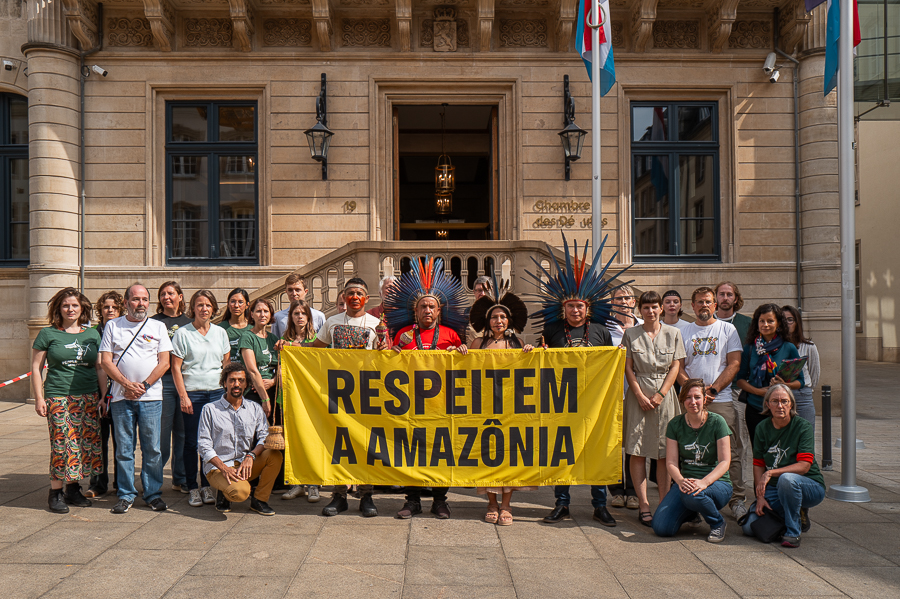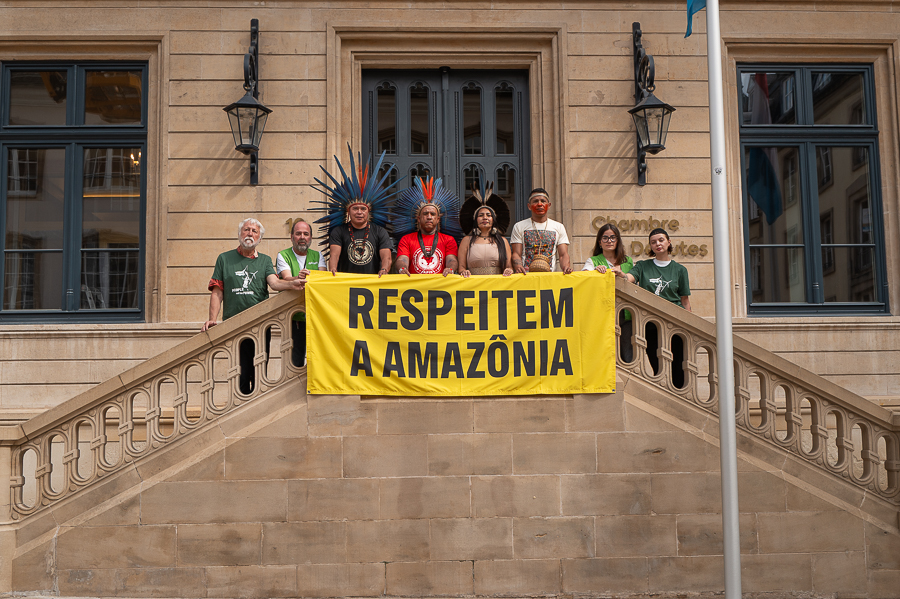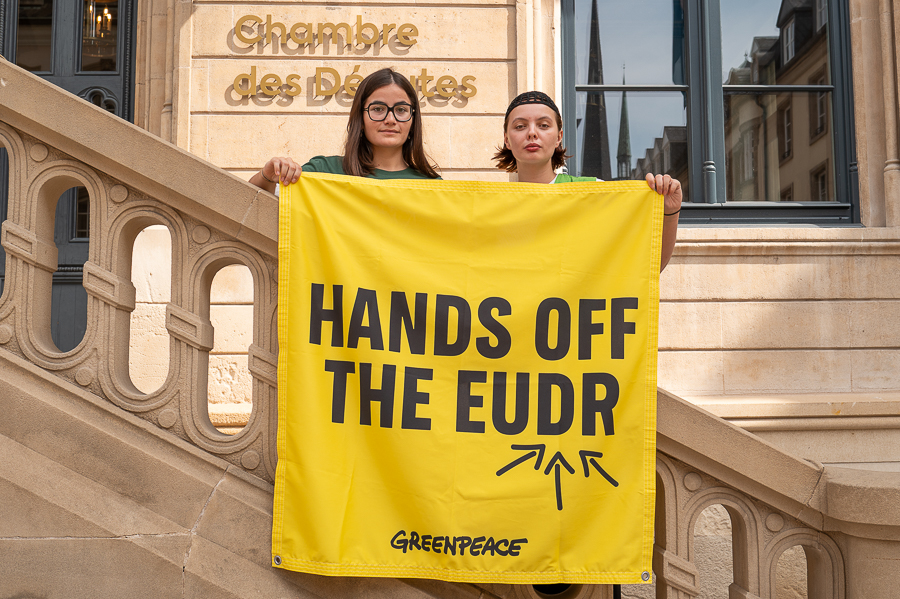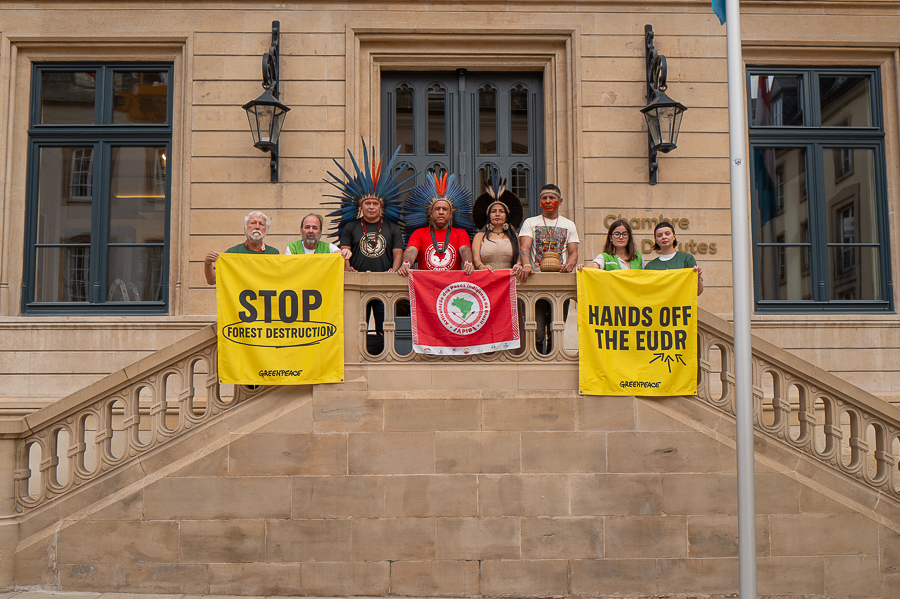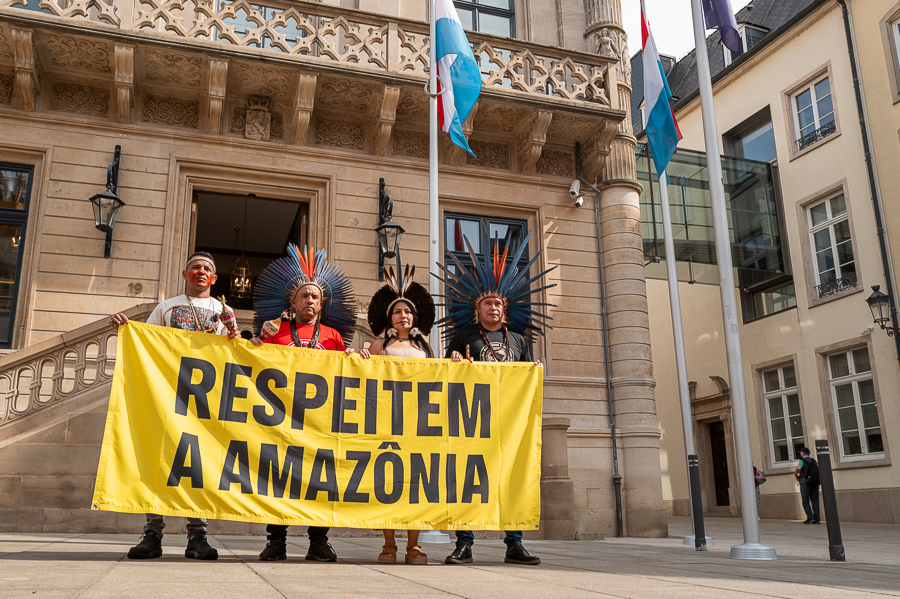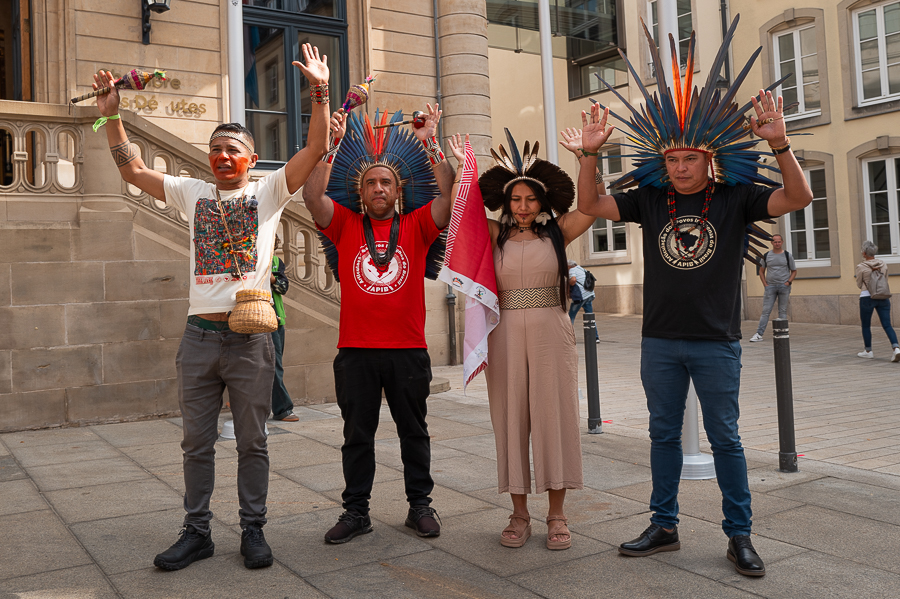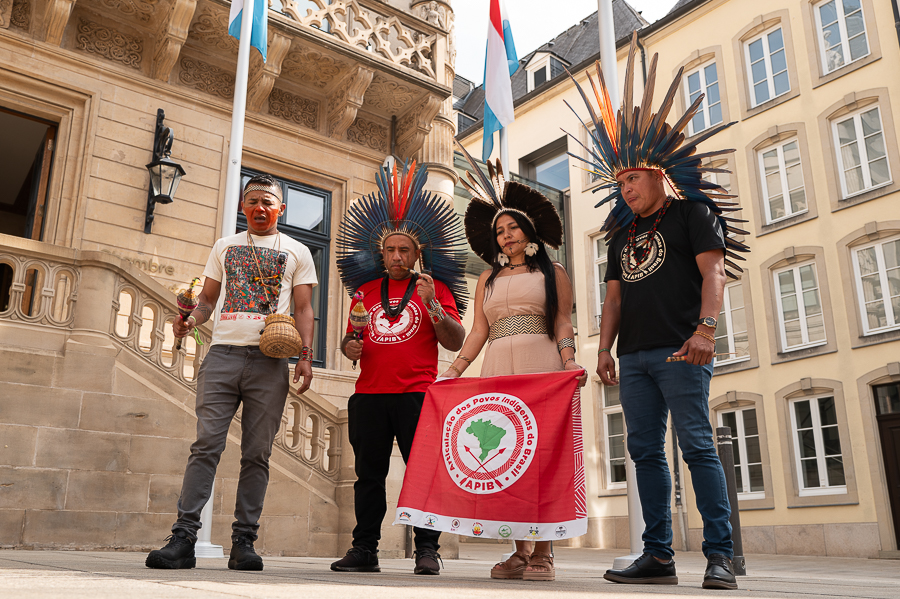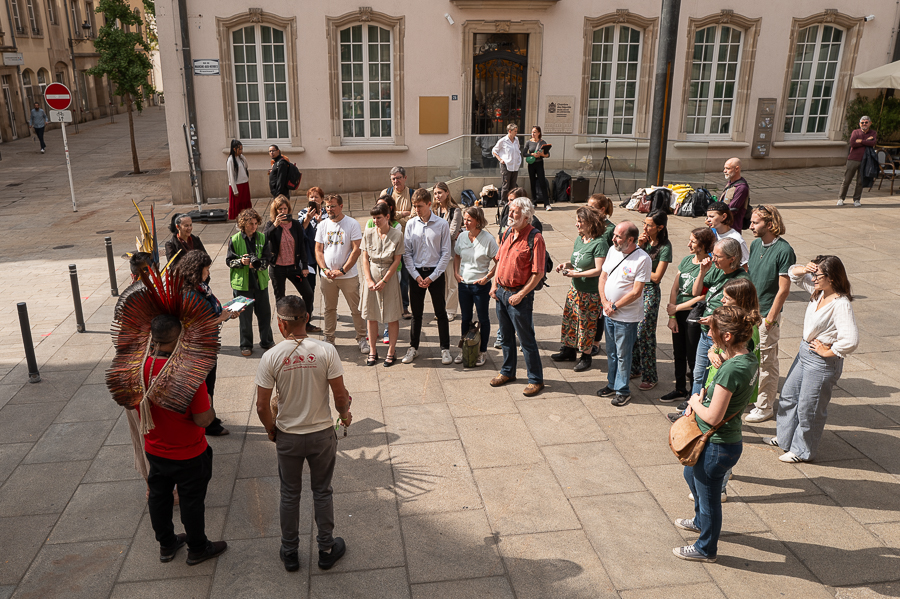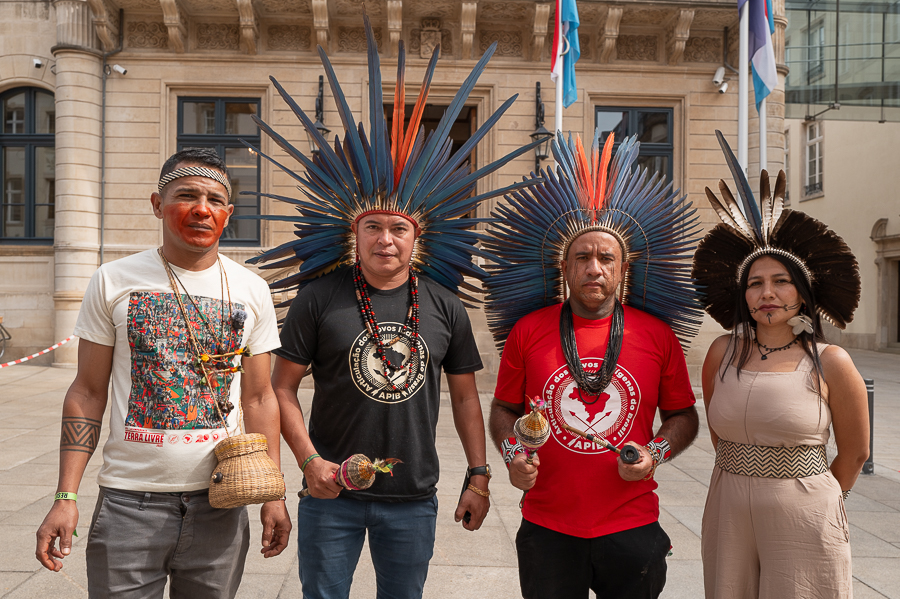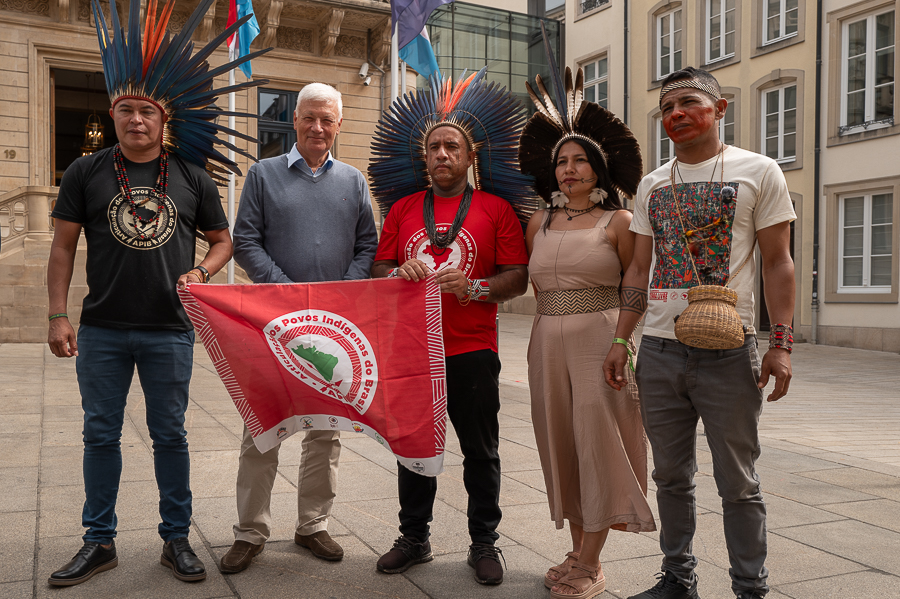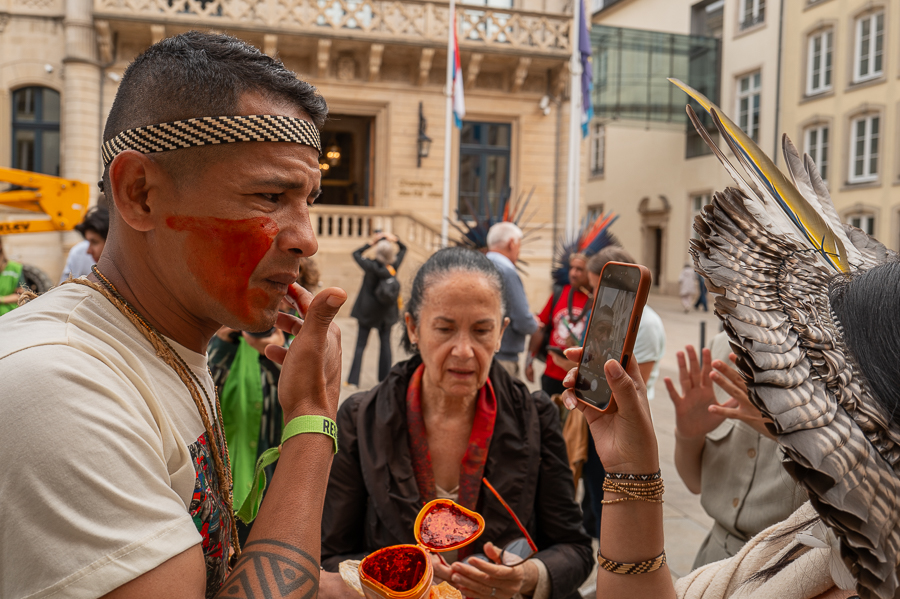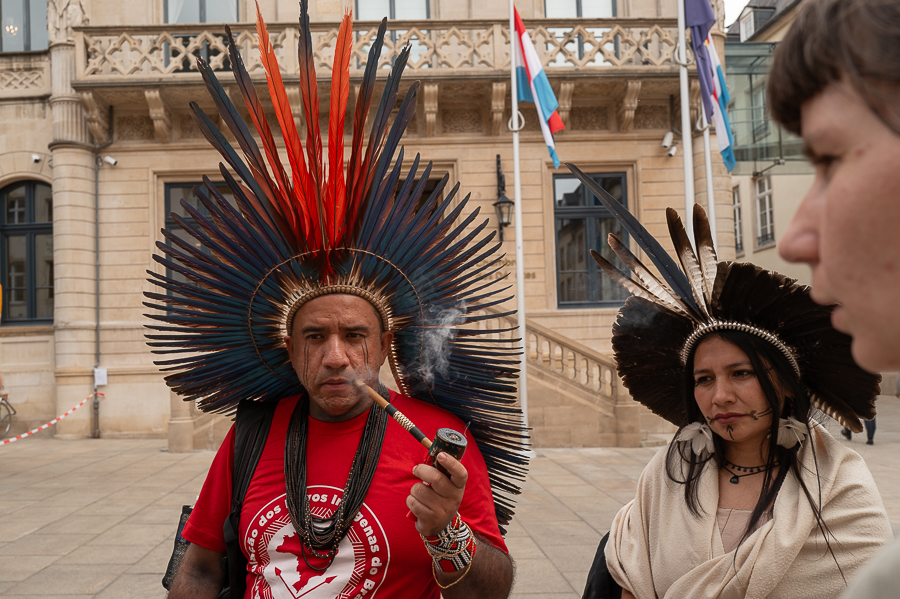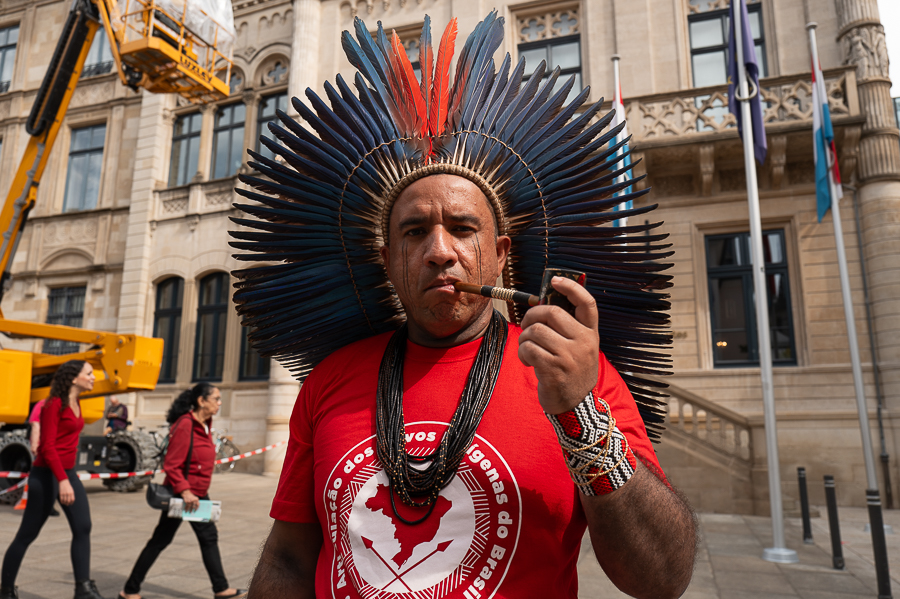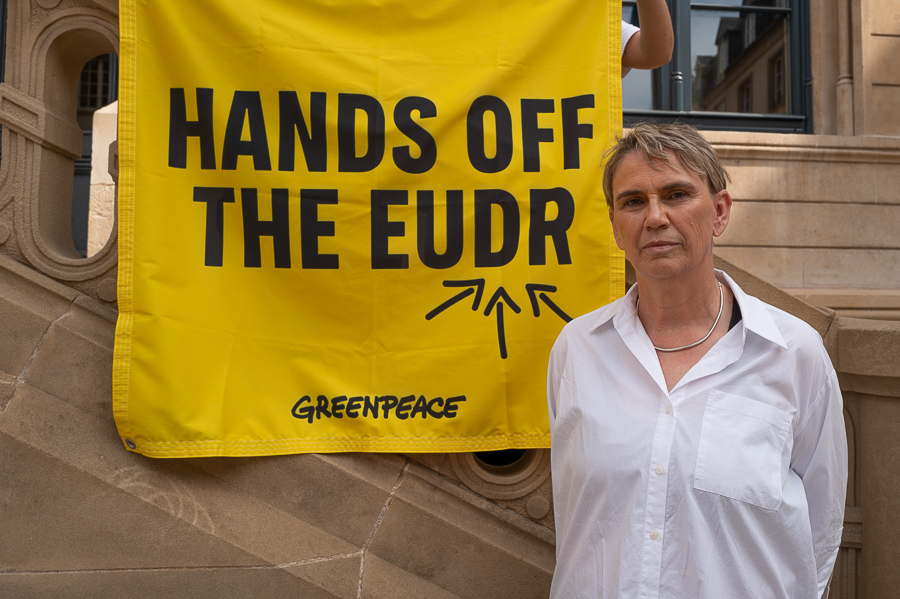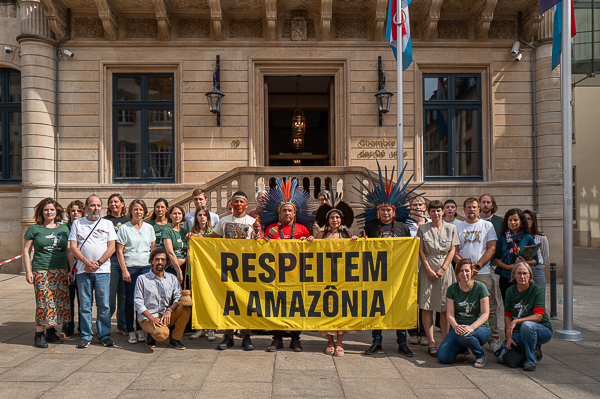 APIB Delegation with Greenpeace Luxembourg and local associations;
Credit: Ali Sahib, Chronicle.lu
APIB Delegation with Greenpeace Luxembourg and local associations;
Credit: Ali Sahib, Chronicle.lu
On Monday 8 September 2025, four representatives of the Articulation of the Indigenous Peoples of Brazil (APIB) joined Greenpeace Luxembourg and local associations in front of the Chamber of Deputies in Luxembourg-Ville to call for urgent action to protect the Amazon rainforest and defend the rights of indigenous people.
The APIB delegation, represented by Dinamam Tuxá, Fabiano Awá Mitã, Otacir Pereira Figueredo and Luana Kaingang, is touring France, Luxembourg and the Netherlands to raise awareness of threats to their territories and to urge governments to act.
In front of the Chamber of Deputies, representatives, dressed in traditional clothing, sang, played musical instruments and held posters, showcasing their cultural heritage. Their performance served as both a cultural reminder and a political statement, raising awareness of the threats and harmful trade policies affecting Indigenous communities living in the Amazon.
According to Greenpeace Luxembourg, the Amazon rainforest is already approaching a critical tipping point, "The Amazon rainforest is already so severely damaged that nearly 17% of its area has been irreversibly destroyed. The world's largest tropical rainforest can no longer fulfil vital functions, including regulating the climate, if destruction continues," warned Martina Holbach, Campaigner at Greenpeace Luxembourg.
The organisation cautioned that reaching 20% of the territorial damage would mark a point of no return for the ecosystem, with catastrophic consequences for biodiversity and the global climate.
Activists denounced the recently-announced EU-Mercosur free trade agreement, which they say would boost soy and beef production tied to deforestation, pesticides and land conflicts. They also expressed concern about efforts to weaken the EU Deforestation Regulation (EUDR), which aims to keep products linked to deforestation out of the EU market.
"The deforestation of the Amazon rainforest destroys more than trees. It threatens the very existence of peoples who live there and who have been guardians of the forest for generations,"- emphasised Ms Holbach.
Speaking with Chronicle.lu, one of the Amazon representatives, Mr Tuxá said that pesticides are contaminating their rivers, fish are poisoned, pregnant women face miscarriages, and children are born with problems caused by long-term exposure to toxins. "If the EU does not approve the Mercosur agreement, it would be a very positive step. Our rights must be considered, not only the interests of big landowners and companies."
The delegation included Dinamam Tuxá, Indigenous lawyer of the Tuxá people, executive coordinator of APIB and co-chair of the Global Alliance of Territorial Communities; Fabiano Awá Mitã, of the Tupi-Guarani people, APIB's executive coordinator for the Southeast region (ArpinSudeste) and a trained nurse; and Otacir Pereira Figueredo, a Terena chief, educator, nurse technician and elected member of the legislative assembly in Mato Grosso do Sul. Luana Kaingang, of the Kaingang people, is a law student and coordinator of ARPINSUL (Articulation of the Indigenous Peoples of the Southern Region). She combines academic research on Indigenous health with activism to defend territories and cultural rights.
The APIB representative informed Chronicle.lu that the delegation's European tour has been intense, with travel every two days for political meetings and one member was even hospitalised in France due to exhaustion.
"It is very tiring to move every two days, meeting politicians again and again and repeating the same message. But we come because it is important to make our voices heard," - Greenpeace communication specialist, Esther Wildanger.
EO


